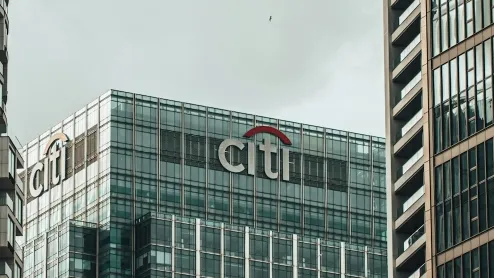
Incoming CEO's abilities could be biggest driver of Standard Chartered's share price
Barclays is banking on Winters' skills.
Barclays has noted that it continues to believe that the ability of Bill Winters, the incoming CEO, to restore confidence in the balance sheet and improve returns will be the biggest driver of Standard Chartered’s share price over the next 12 months.
According to a research note from Barclays, this perhaps makes the Q1 operating performance less relevant.
However, Barclays also noted that the Q1 IMS and call did highlight ongoing revenue pressure, the usual commentary on relatively stable credit quality but a lumpy provision charge outlook and that the current management team expect to meet their cost saving and capital targets.
With HSBC having just begun a review on its domicile, this was inevitably a topic of discussion for Standard Chartered which could prove to be a future catalyst.
Here's more from Standard Chartered:
Revenue pressure continues: The Corporate & Institutional division continues to be the main driver of group results and, along with a significant deterioration in the much smaller Commercial division, was the main cause of the 4% YoY revenue decline.
The company highlights greater resilience on a constant currency basis – down 1% YoY – although management’s comments suggest that the revenue pressure is more related to market conditions than anything else.
Trade and Corporate Finance are the main areas of revenue weakness, down 9% and 10% respectively YoY, and these are said to be down to issues like falling commodity prices impacting Trade and increased liquidity and some pricing pressure affecting Corporate Finance.
Management didn’t point to anything that Standard Chartered is doing differently to peers or any changes in trend that would cause this to change direction although stable to firmer commodity prices should help in time. Business exits will be an increasing headwind for the rest of the year as they were a $60m drag in Q1 but are expected to reduce FY15 revenues by $450m.
Controlling controllable costs: YoY cost growth of 1% is said to include a 3% reduction in business as usual costs which management quantified as c90% of the cost base. This suggests that regulatory costs increased by around 1/3rd or c$90m YoY.
If regulatory costs continue to grow at this pace then they would consume almost all of the $0.4bn cost savings targeted for this year and that’s before the $170m expected increase in the UK bank levy. Together these could drive 5% cost growth and would exceed the $0.4bn cost savings planned for this year and erode the $1.8bn over the next 2-3 years.
Credit quality stable but lumpy: Although both NPLs and early alerts were said to be relatively stable QoQ, management were non committal on the outlook for provisions, highlighting that Corporate & Institutional in particular can be lumpy from one quarter to the next. Commodities exposure has been reduced again in the quarter and Retail credit quality is continuing to improve which is reassuring.
Lacking clarity on capital: The company does not disclose its capital position on a quarterly basis but its CET1 ratio could potentially have eased a little from the 10.7% reported for December 2014 due to some RWA inflation and FX headwinds on capital.
Regulatory changes are expected to have a 10-25bp impact in Q2 and a further smaller impact in H2. However, with plans to reduce RWAs by $25-30bn about to be put into action, management remain confident of getting into their targeted 11-12% CET1 range this year.
Discussions on domicile: Although domicile is constantly reviewed, current management are non-committal on the best place to headquarter Standard Chartered which is understandable with the incoming CEO about to join.
We estimate that the UK bank levy is a 1-1.5% drag on RoTE - similar to our estimate for HSBC - but the company also identified some issues with redomiciling such as the ability to find sufficient skilled personnel, potential tax impacts of moving companies around, regulatory requirements and the complexities of moving systems. With HSBC recently announcing that it is again reviewing its domicile this will remain an area of focus for both banks.



















 Advertise
Advertise











